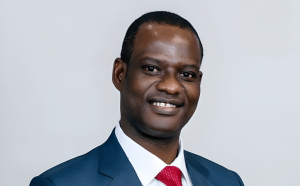Chairperson at the African Union (AU)

The African Union (AU) is a continental body consisting of the 55 member states that make up the countries of the African Continent. It was officially launched in 2002 as a successor to the Organisation of African Unity (OAU, 1963-1999). We are an Integrated, Prosperous and Peaceful Africa, driven by its own citizens and representing a dynamic force in the global arena.
We are recruiting to fill the position below:
Job Title: Chairperson
Location: Addis Ababa, Ethiopia
Job Grade: SP1
Level: Seven (7)
Job Family: Elected Official
Directorate / Department: Bureau of the Chairperson
Reports to: The AU Assembly of Heads of State & Government and the AU Executive Council
AU Values
- Respect for Diversity and Teamwork
- Think Africa Above all
- Transparency and Accountability
- Integrity and Impartiality
- Efficiency and Professionalism
- Information and Knowledge Sharing
Context:
- The Chairperson of the African Union Commission is the Chief Executive Officer, Legal Representative of the Union and the Accounting Officer of the Union. The Chairperson of the Commission is a transformative leadership role responsible for driving the performance of the AU Commission in delivering the continental vision of an integrated, prosperous and peaceful Africa.
- The Chairperson is directly responsible to the Executive Council for the discharge of his / her duties.
- The Chairperson of the Commission shall have a high commitment to pan-African values and the guiding principles of the African Union.
Statutory Functions:
- As Accounting Officer of the Union, is responsible for the administration and enforcement of the AU Financial Rules and Regulations across the Union and ensuring overall administrative and financial compliance;
- Chairs all Commission meetings and deliberations to determine the order of the agenda items, ensures clear and inclusive submission of information by attendees and directs discussions towards achieving consensus and way forward;
- Undertakes measures aimed at promoting and popularizing the Africa Union’s objectives and enhance its performance in achieving its mandate;
- Submits reports to the Assembly, Executive Council, Permanent Representatives Committee (PRC), committees and any other organs to inform effective decision-making;
- Prepares, with the PRC, the African Union (AU) budget and strategic planning documents of the AU to ensure timely planning and acquisition of adequate resources necessary for achieving AU’s objectives;
- Acts as a depository for all AU and OAU treaties and legal instruments;
- Facilitates the functioning, decision-making and reporting of all AU organ meetings, and ensure conformity and harmony with agreed AU policies, strategies, programmes and projects;
- Consults and coordinate with Member States’ governments, other institutions and the Regional Economic Communities (RECs) on the AU’s activities, and carry out the AU’s diplomatic representations;
- Leads efforts in determining the size and structure of the African Union Commission through organisational reviews, staff appointments and capacity building to ensure the Commission has adequate capacity to fulfill on its mandate;
- Assumes overall responsibility for the Commission’s administration and finances to ensure efficient and effective undertaking of the Commission’s mandate as the secretariat of the AU;
- Prepares the annual report on the AU and its organs’ activities to inform on the progress of AU projects and programmes and provide recommendations on the way forward; and
- Contributes towards making Africa a significant partner in the global level as well as an integrated bloc within the continent by participating in global platforms, conferences and meetings to build mutually beneficial strategic linkages with other regional, continental and global organisations.
Specific Responsibilities
- Leads the implementation of the Commission’s mandate and policies in line with the aspirations set out in Agenda 2063, the associated medium-term plans and other key continental legal and policy frameworks;
- Drives and supervises the performance and delivery of the Commission’s senior leadership team to establish a high-performing efficient and effective organization that is able to deliver on agreed continental priorities, attract and retain the best quality staff at all levels while operating within a strong accountability and performance-based framework.
- Drives the implementation of the AU institutional reform agenda;
- Leads diplomatic engagements and implement tasks assigned by the AU Assembly of Heads of State and Government and the Executive Council;
- Drives the coordination and management affairs in respective portfolio departments and service departments in the AUC;
- Liaises closely with the organs of the Union to guide, support and monitor the performance of the Union in the various areas to ensure conformity and harmony with agreed policies, strategies, programmes and projects;
- Assesses the need for AU branches, administrative and technical offices in conjunction with the PRC as may be considered necessary for the adequate functioning of the Commission, and create or abolish them as necessary with the approval of the Assembly;
- Drives effective co-ordination of AU strategic partnerships in support of the delivery of continental priorities;
- Ensures the smooth and efficient functioning of AU statutory meetings; Coordinate all activities and programmes of the AUC related to gender issues and ensure gender equity in all affairs of the AUC;
- Establishes an institutional culture that promotes integrity, strong ethical practices, accountability, good governance and strong staff performance and delivery;
- Carry out such other functions as may be determined by the Assembly or the Executive Council.
Key Relationships
Internal Relationships:
- The Assembly of Heads of State and Government
- Executive Council of the African Union
- Permanent Representatives Committee
- Peace and Security Council
- Other AU Organs
- Deputy Chairperson
- Commissioners
- Director-General
- Directorates
- AUDA-NEPAD
- Africa Continental Free Trade Area (AfCFTA) Secretariat
External Relationships:
- AU Member States
- Regional Economic Communities (RECs)
- International development partners
- UN General Assembly
- UN Security Council
- UN System
- African Development Bank
- African private sector
- Civil Society Organisations
- Research Institutions and Policy Think Tanks
Academic Requirements
- Master’s degree in Law, International Relations, Economics, Diplomacy, Management, Business Administration, Political Science, Social Sciences or closely related field from a recognized institution.
- A PhD in Law, International Relations, Diplomacy, Management, Business Administration, Political Science, Social Sciences or closely related field from a recognized institution is an added advantage.
Relevant Experience:
- Have not less than twenty (20) years of relevant professional and international experience with at least ten (10) years served in progressive senior leadership role(s) preferably in an intergovernmental organisation or national government/public service, international or regional institution.
Language(s):
- Proficiency in one of the AU working languages. Fluency in another AU working language is highly desirable.
Required Skills:
- Demonstrated transformational leadership experience with strategic vision and proven skills in managing complex organizations at the national, regional or international level;
- Demonstrated record of setting clear standards for accountability, probity, value for money and risk with management and zero tolerance to fraud and corruption; for ensuring sound and transparent financial management; and delivering continuous improvement, impact, efficiency and effectiveness;
- Demonstrated intellectual leadership, creativity and proven ability to propose new ideas and lead on new ways of working across silos in a complementary and synergistic way for a prosperous and peaceful Africa;
- Proven track record of change management and accomplishments at the regional, national or international level with strong resource mobilization, political and diplomatic skills;
- Demonstrated ability to lead a multi-cultural team and establish harmonious and effective working relationships both within and outside the organization;
- Proven ability to inspire, encourage, build trust and confidence and build consensus, stimulate effective campaigns and drive collective action among a broad spectrum of people and organizations.
Leadership Competencies:
- Drives Strategic Vision and Purpose: Anticipates future trends and artfully crafting a transformational and impactful vision that inspires action and drives a collective sense of purpose. Able to discern when to inquire, advocate, drive, or resolve. Proactively identifies and prioritizes the key issues involved to facilitate executive decision-making and makes well-informed, effective, and timely decisions, even when data is limited, or solutions produce unpleasant consequences; perceives the impact and implications of decisions.
- Developing Organizational Capability: Champions organizational learning and development to ensure that the Commission is well-positioned to meet future leadership needs and mentors others to enhance their development.
- Change Leadership: Acts as a catalyst for organizational change. Influences others to translate vision into action and identifies change opportunities and champion organizational change initiatives – consistently looks for ways to improve the Commission’s performance. Creates a harmonious environment that promotes a sense of belonging, creates a community of trust and enables respect, dignity and tolerance. Able to resolve conflicts arising to competing objectives, limited resources, or differing perspectives and seeks amicable solutions.
- Strategic Risk Management: Protects the Commission’s image and reputation by making risk-intelligent decisions and using sound judgement in highly complex situations based on an assessment of the risks and benefits, impacts.
Core Competencies:
- Building Partnerships: Identifies and develops sustainable networks and builds alliances; collaborates across boundaries to build strategic relationships and achieve common goals to foster organizational goals through proactive engagement with key stakeholders. Perceives organizational and political reality and acts accordingly.
- Drives Accountability Culture: Drives the uncompromising commitment to ethical and moral principles demonstrated by the highest standards of professionalism in reaching the highest standard of performance and achieving results in support of the Commission’s mandate, objectives and aspirations.
- Learning Agility and Resilience: – Creates and enables a learning organisation that promotes and develops personal and professional goals and makes insightful career planning decisions to achieve (or alter) these goals. Has resilience and ability to sustain energy levels under pressure and to cope with disruptive changes and adapt.
- Communicating with impact: – Projects authority, credibility and influences external executive decision-makers to achieve substantive goals. Negotiates to find mutually acceptable solutions and recognizes the impact of alternative courses of action. Capacity to communicate authentically to maintaining trust and buy-in when responding to competing demands and volatility.
Functional Competencies:
- Conceptual Thinking: – Creates new concepts that are not obvious to others to think through issues and / or resolve problems.
- Job Knowledge Sharing: – Fosters and enables a knowledge and information-rich culture through engaging with thought leaders within and outside the Commission.
- Drive for Results and Impact: Drives high-performance standards from goal creation to continuous improvement. Commits significant resources and/or time (in the face of uncertainty) to improve performance, reach a challenging goal and implements innovative solutions. Establishes clear responsibilities and processes for monitoring, communicating progress, and measuring results.
- Fosters Innovation: Develops new insights into situations; questions conventional approaches; encourages new ideas and innovations; designs and implements new or cutting-edge programs / processes for the overall performance of the organization and the portfolio.
Application Closing Date
4th September, 2020. 11:59PM or 23:59 Hrs, Addis Ababa Time.
The post Chairperson at the African Union (AU) appeared first on Jobs in Nigeria – http://jobsinnigeria.careers.







